 Ahmed Abdelmotteleb
Ahmed Abdelmotteleb
University of Warwick, United Kingdom
I am a PhD student at the University of Warwick with the LHCb group. My current work revolves around precisely measuring the W boson mass. I am originally from Cairo, Egypt. I did my master's degrees at the University of Manchester with the ATLAS group researching Majorana neutrinos. I also worked for a while at Brookhaven National Lab researching Quark Gluon Plasma using heavy ions.
I love coming across new concepts that I can apply to my HEP research. That's why I always do a lot of self-learning across various topics including Machine Learning, GPU programming, and, more recently, Quantum Computing.
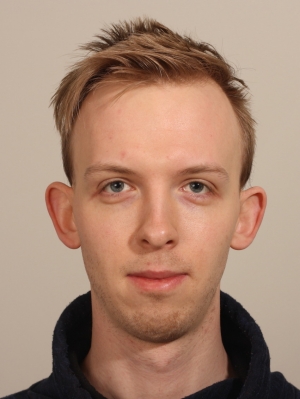 Martin Cejp
Martin Cejp
CERN
Ever since my early childhood, I have had a passion for science and engineering. I studied at the Czech Technical University in Prague where I earned a Master’s degree in Cybernetics and Robotics – a mix of electrical engineering and computer science.
I joined CERN as a Technical Student, working on a system for wireless radiation monitoring. My journey continues in the Electrical Power Converters group, where I currently work on our software stack, which spans from real-time control code at the low level, up to the servers responsible for the configuration and monitoring of the several thousand power converters in the accelerator complex.
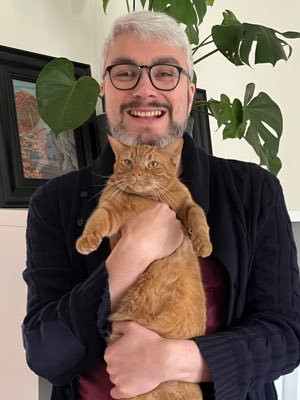 Tom Dack
Tom Dack
Science and Technology Facilities Council (STFC), United Kingdom
I work within the Scientific Computing Department at the UK Science and Technology Facilities Council (STFC), part of UK Research and innovation. In my role, I specialize in Authentication and Authorization infrastructure (AAI), where I run an Identity and Access Management (IAM) service for the IRIS community – the coordinating body for STFC’s e-infrastructure.
Alongside this, I am the Scrum Master for the Square Kilometre Array Telescope’s AAI prototyping work and am the current chair for the WLCG Authorization working group. My academic background is MSc Computer Science and BSc Physics, both from the University of Birmingham, and I attended the main CSC in Krakow, 2022.
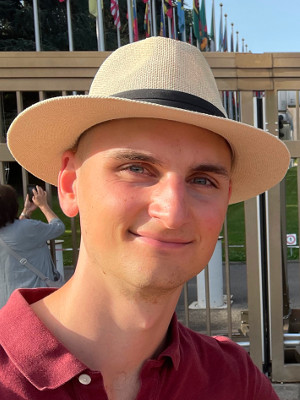 Jack Henschel
Jack Henschel
CERN
I am Jack: an avid cyclist and cloud computing enthusiast. I enjoy building reliable and secure infrastructure, which I'm currently doing as part of CERN's OpenShift team.
I also enjoy traveling (especially with the bicycle), cooking food and trying new dishes. Previously, I studied Security and Cloud Computing at Aalto University in Finland.
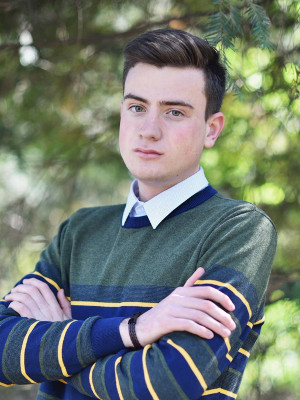 Ivan Kabadzhov
Ivan Kabadzhov
Albert Ludwig University of Freiburg, Germany
I am now finalizing my Master's in Computer Science at the University of Freiburg. Here I was formally introduced to performance profiling and optimization. I was working as a technical student at CERN for 14 months. My main tasks involved performance profiling and C++ development of ROOT's data analysis interfaces.
I conducted a completely new investigation of the performance bottlenecks of the ROOT’s data frame (RDataFrame) when scaling on an HPC cluster up to 1024 cores with Slurm. Previously, during my BSc in Computer Science, I was a teaching assistant for programming in C++, operating systems, and algorithms classes.
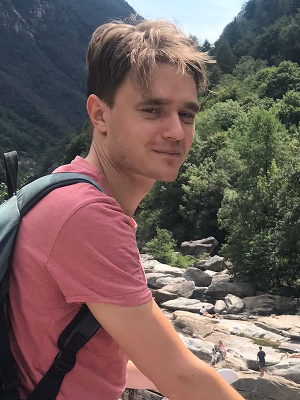 Peter Kicsiny
Peter Kicsiny
CERN and EPFL, Switzerland
I am a PhD student in particle accelerator physics, studying the nonlinear dynamics and instabilities of colliding beams at the proposed Future Circular Collider (FCC-ee). Based at CERN, I am part of a team developing a general purpose beam dynamics simulation software.
I hold a BSc in physics and an MSc in applied and engineering physics with a specialization in scientific computing. Besides my studies I broadened my experience in the frame of side projects and internships, both in industry and academia.
With my course I would like to share my experience in multiplatform programming and introduce you to the topic in a practical way.
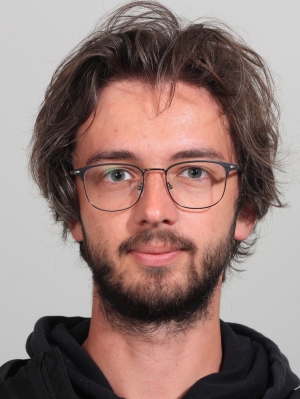 Piotr Konopka
Piotr Konopka
CERN
I am a software engineer at the ALICE experiment at CERN. There, I develop the data Quality Control framework, which is used both to quickly identify problems with the detector during data acquisition and to reliably select high quality data for physics analyses.
The framework is the first of its kind to rely fully on message passing and the actor model and was the topic of my PhD thesis defended in June 2022.
I also contribute to and support the ALICE Online-Offline computing system, which is designed to acquire 3.5 TB/s of raw detector data, then process and analyse them using one, common message passing framework.
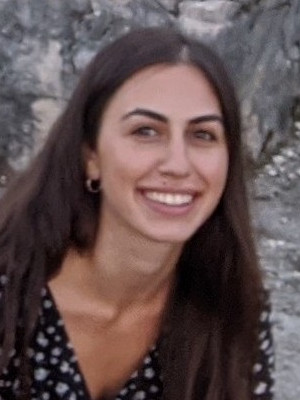 Charis Kleio Koraka
Charis Kleio Koraka
University of Wisconsin Madison, United States
I am a particle physicist and postdoc at the University of Wisconsin-Madison. I have been working with the CMS experiment, analyzing data collected by the detector, measuring properties of the Standard Model and searching for new physics.
I am currently working on porting part of the experiments event reconstruction software to run on accelerators and extending the use of GPUs for offline computing@CMS. I obtained my Ph.D. from the University of Athens, Greece in 2021, studying the associated production of the Higgs boson with a pair of top and anti-top quarks and working on the CMS detectors triggering system.
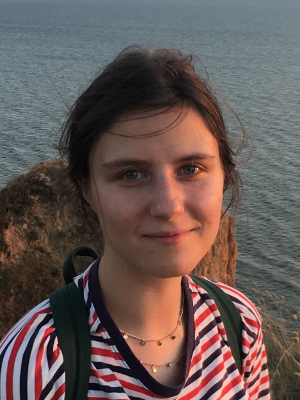 Valeriia Lukashenko
Valeriia Lukashenko
NIKHEF, Netherlands
I am a physics PhD student at Nikhef, Amsterdam. During my PhD, I have been working on the LHCb CPU-based track fitter and comparison of the track fitter in the CPU and GPU implementations for LHCb. I worked on characterising the LHCb vertex tracking detector during commissioning in 2022. In my “tracking-free” time, I work on CP-violation measurements and an exotic neutrino search. After 6 in the evening and on the weekends, I like to go to drama classes, embroider and read.
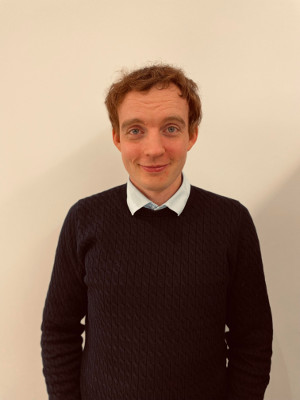 Michal Maciejewski
Michal Maciejewski
Roche, Switzerland
I am an enthusiastic research software engineer with contagious enthusiasm and passion for working on multi-disciplinary project. I spent nearly a decade working at CERN and ETH Zurich as a lead developer for a wide range of applications: from standalone numerical algorithms for model coupling, through a big data platform for signal monitoring of the Large Hadron Collider, to an ML-based optimisation micro-service framework for design of future particle accelerators.
Currently, I'm a big data engineer at Roche working on digital biomarkers supporting on-going clinical trials. In my spare time, I enjoy hiking, biking, running, and skiing in the mountains.
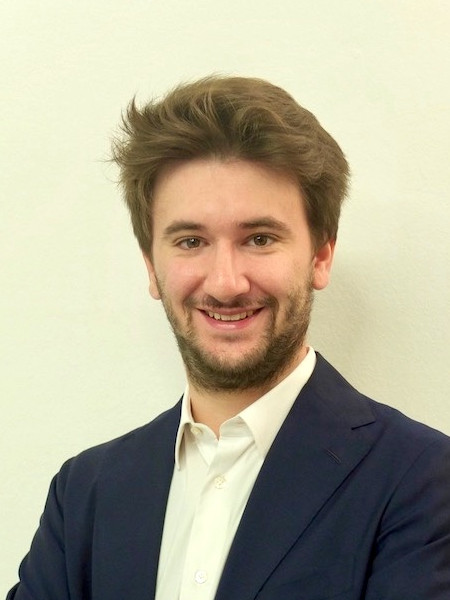 Jacopo Talpini
Jacopo Talpini
Università degli Studi di Milano-Bicocca, Italy
I am currently pursuing a Ph.D. in Computer Science at Università degli Studi di Milano-Bicocca, with a focus on trustworthy machine learning. More generally, my research interests also extend to the intersection of machine learning and security.
Prior to this, I graduated in astrophysics and my master's thesis project was focused on applying deep learning methods for characterizing transient noise in gravitational-waves detectors.
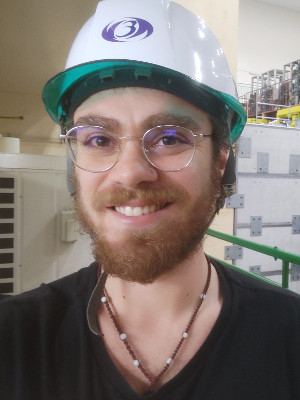 Ilias Tsaklidis
Ilias Tsaklidis
University of Bonn
I am a PhD student at the Belle II experiment and I’m involved in lepton flavor universality tests. After obtaining my undergraduate degree from the Aristotle University of Thessaloniki I did my M.Sc. at the University of Strasbourg.
During my studies I have worked on the development of deep learning methods for particle identification and decay reconstruction. I believe that high energy physics can greatly benefit from machine learning even though it sometimes might feel difficult to follow the rapid advancements on the subject. In my lecture I will try to bridge nomenclature differences between the two fields which I consider essential for high quality deep learning algorithm engineering.
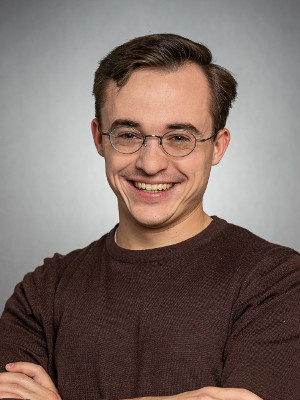 Felix Wagner
Felix Wagner
HEPHY, Austria
I am a PhD candidate at the Institute of High Energy Physics of the Austrian Academy of Sciences, in Vienna. I am working on data analysis and software development for the CRESST and COSINUS direct dark matter searches.
The main focus of my work is the automation of our data analysis workflow through machine learning.
For that I am maintaining an open source Python package for the analysis of cryogenic detectors and have developed methods to automate data cleaning with neural networks and detector operation with reinforcement learning. In my private life, I like hiking and have a cat.